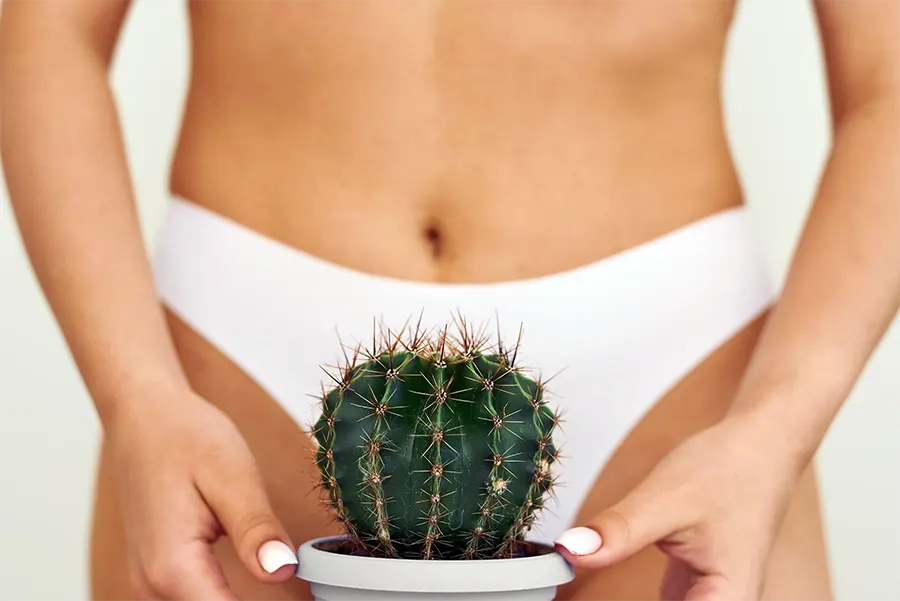It can feel embarrassing to talk about vaginal itchiness and dryness, but these conditions are not uncommon in women going through the menopause transition. A drop in hormone levels of estrogen, progesterone, and testosterone can lead to what is m...
Dryness
It can feel embarrassing to talk about vaginal itchiness and dryness, but these conditions are not uncommon in women going through the menopause transition. A drop in hormone levels of estrogen, progesterone, and testosterone can lead to what is medically called Vulvar and Vaginal Atrophy (VVA) or Genitourinary Syndrome of Menopause (GSM).
VVA/GSM is described as the thinning, drying, and inflammation of the vaginal wall. The vaginal tissue also becomes less elastic and more fragile, the results of which can be itchiness and dryness.
Vaginal atrophy is often accompanied by urinary symptoms and can significantly affect quality of life, worsening with age if not managed. But there’s no reason any woman should have to suffer this discomfort throughout the menopause transition. Learn more about the causes of vaginal itchiness and dryness, how it’s diagnosed, and treatment options for relief.
All Dryness Articles
Understanding Vaginal Itching and Dryness: Causes, Symptoms, and Effective Treatments
As women age, vaginal itching and dryness become more common, affecting 50% of those over 50, and worsen without treatment. Discover effective and safe treatments to a...

Effective Ways to Balance Vaginal pH
Curious about vaginal pH? Learn how hormones, diet, and lifestyle impact balance — and what to do when things feel off.
...
Managing Vaginal Yeast Infections During Menopause
Menopause is not the cause of vaginal yeast infections. However, the risk of yeast infections may increase starting in perimenopause and throughout postmenopause. Disc...

Effective Feminine Dryness Remedies
Vaginal dryness and itching are pretty hard to ignore. Of all places to feel dry, itchy, and irritated, your vagina is a pretty terrible option. The good news is that...
